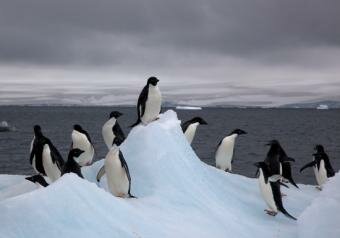Google announced the public beta of its Cloud Vision API on Thursday. The announcement marks the public availability of the Google Cloud Vision...

A newly published study suggests that tens of thousands of Antarctic penguins are failing to come back to their colony after a huge iceberg grounded there. Researchers from Australia and New Zealand penned down in the Antarctic Science journal that measuring some 100 square kilometers, the B09B iceberg grounded in December 2010, in Commonwealth Bay in East Antarctica.
They said that in February 2011, the Adelie penguin population at the bay's Cape Denison was measured to be roughly 160,000, but by December 2013, it fell to an estimated 10,000.
The researchers said that the iceberg's grounding meant the penguins were required to cover over 60 kilometers to seek food, obstructing their breeding attempts.
They wrote in the research published in February that the Cape Denison population is likely to get extirpated within two decades if B09B doesn’t relocates or the existing perennial fast ice within the bay doesn’t breaks out.
The researchers said in their census in December 2013 that they have spotted hundreds of abandoned eggs, and witnessed that the ground was littered with the freeze-dried carcasses of the chicks of previous season.
While speaking to the Sydney Morning Herald, UNSW's Chris Turney, who headed the 2013 expedition, said that now it's eerily silent.
Turney said, “The ones that we saw at Cape Denison were incredibly docile, lethargic, and almost unaware of your existence. The ones that are surviving are struggling and can barely survive themselves, let alone hatch next generation. We saw dead birds on ground, it's heartbreaking to see."
The scientists said that in contrast to this, penguins present on the eastern fringe of the bay only at a distance of eight kilometers from the ice edge, were flourishing.









